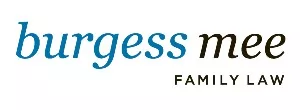Welcome to the next blog in our series of articles about supporting couples in the week that no-fault divorce changes the family law landscape.
There are now quite a few services which offer a "one lawyer, two clients" type service.
Historically this has not been something which is possible for solicitors to do. However, it seems quite likely moving forward that this will change, especially as no-fault divorce opens the door to greater collaboration between couples going through separation.
The trend started with the "Amicable" service. This is a service run by divorce coaches (they are not regulated as lawyers). It is based around an app (Amicable) but there are bolt-on services provided by coaches. It was endorsed in a judgment by Mr Justice Mostyn as being a good idea.
Shortly after Amicable, two barristers from 4 Paper Buildings launched a service called "The Divorce Surgery". This was the first of its kind. It promised to give couples who are in dispute both a forum for a disclosure process and an early neutral view to try to help them to come to an amicable agreement.
As might have been expected, this was soon followed by similar offerings on the solicitor side. Withers (the writer's alma mater) has a service called "Uncouple" which is based around mediation with other services brought to offer clients access to different types of advice and support.
In our view, there are pitfalls with all these services. What solicitors cannot do in this situation is give individual advice specific to one individual and it does presuppose that the two clients in question both want to work towards an amicable solution. Of course, as their interests directly conflict, it may not always be appropriate for them to receive joint advice from a lawyer.
At Burgess Mee we have launched our own new advice service of a different kind. This project gives separating couples joint legal and financial advice with a nationally recognised firm of wealth managers and the support of a divorce consultant selected from an assembled panel. The service, called The Cross Check, allows individual clients to do just that against an offer for settlement that is made by their spouse. Perhaps they feel they just need some support to help them understand where they will be left by a financial offer that has been made. This service is made for them.
Details about The Cross Check can be found here.
The content of this article is intended to provide a general guide to the subject matter. Specialist advice should be sought about your specific circumstances.

